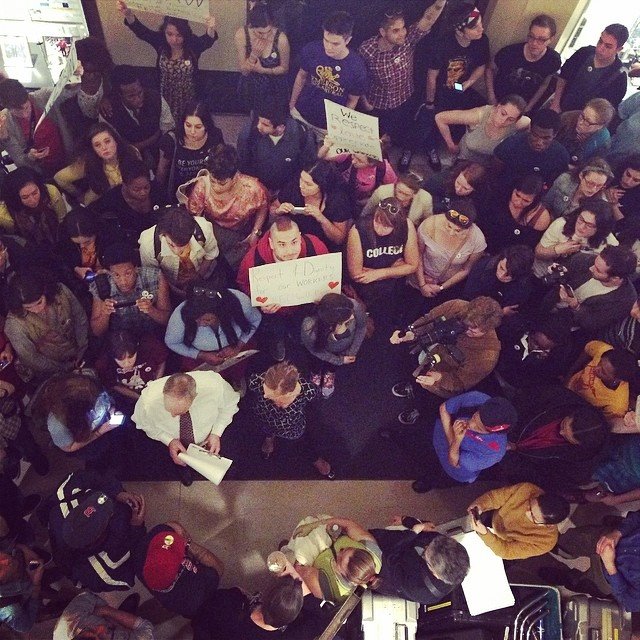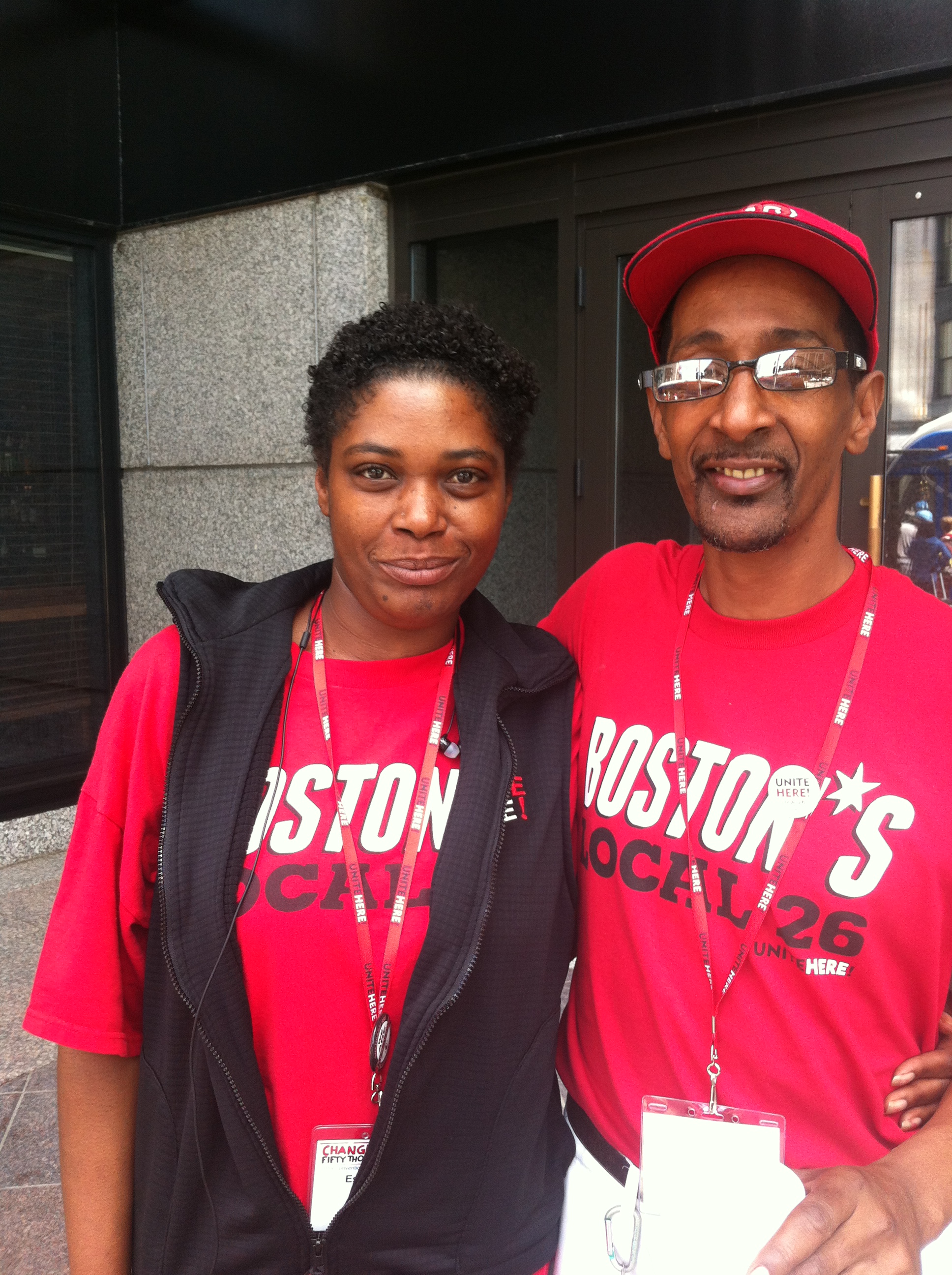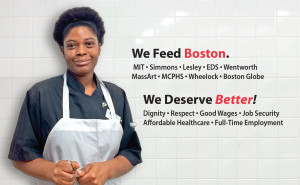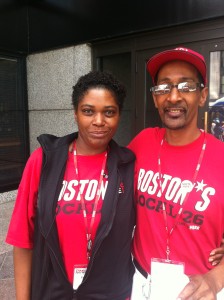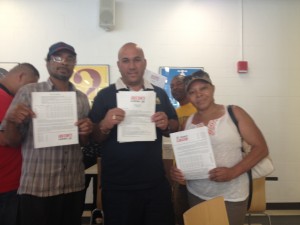A giant food service company unexpectedly reversed course Thursday after bumping thousands of college cafeteria workers from its health plan earlier this year and pointing a finger at President Barack Obama’s overhaul.
Sodexo’s experience could serve as a cautionary tale for other employers trying to pin benefit reductions on “Obamacare.” The company’s cutbacks fueled a union organizing drive and campus protests.
Julie Peterson, Sodexo’s vice president for benefits, said the company will make changes for next year to restore eligibility for many of those affected.
“We think that overall this is going to result in about the same number of employees being eligible as in the past,” Peterson said. The latest shift grew out of a regular review of company policy, she added.
“We’ve realized we can change the way we are determining eligibility and still remain competitive in the market,” Peterson explained.
Among those who lost their coverage through Sodexo this year was Julie Pemberton, a cashier at Curry College, a liberal arts institution near Boston.
Pemberton puts in more than 40 hours a week during the academic year. She’s paying over $200 a month more in premiums since she switched to a plan from the Massachusetts health insurance exchange.
“I’m actually looking for a new apartment because this is just draining any savings I have,” said Pemberton. “I can’t just keep paying and paying and paying.”
UNITE HERE, a labor union trying to organize Sodexo workers, said the company’s initial cutback was facilitated by what it calls a loophole in federal regulations carrying out the health law’s employer coverage requirement.
The Obama administration responds that the employer, not the health care law, was to blame.
French-owned Sodexo is a multinational service company with U.S. headquarters in Maryland. It operates many college cafeterias and also provides other campus services. In January, Sodexo reclassified some of its workers as part-time by averaging their hours over a 52-week calendar year. That affected about 5,000 of its 133,000 U.S. employees.
Sodexo said it was acting to align itself with the health care law, which requires that employers with 50 or more workers offer coverage to those averaging at least 30 hours per week, or face fines.
Company official Peterson said Thursday that for benefits purposes, the company will now credit campus employees during the summer break with the hours they would have worked during the academic year.
The UNITE HERE union says federal rules require colleges and universities to essentially do the same thing for their faculty employees. But those rules don’t apply to contractor employees in cafeterias.
“There is nothing in there that says contract workers are protected,” said union spokesman Ethan Snow.
At least one college that examined the issue agreed with the cafeteria workers. Earlham College in Richmond, Indiana, recently amended its contract with Sodexo to require that the employees be offered coverage.
“Sodexo’s classification system was not consistent with the practices of other vendors, or with Earlham’s policies,” said Sena Landey, vice president for finance at the Quaker-founded liberal arts institution.
Landey said it looks like a slip-up on the part of federal regulators.
“I just don’t understand why you would benefit faculty and not those on the lower end of the pay scale,” Landey said. “I don’t see the logic in it.”
The Treasury Department, which enforces the health law’s employer coverage requirement, declined requests for an interview. Spokeswoman Erin Donar said in a statement:
“Nothing in the Affordable Care Act requires an employer to eliminate health coverage for any employees or penalizes an employer for offering health coverage to all employees. An employer that eliminates health coverage is doing so by choice, not by requirement.”
The mandate that larger employers provide health coverage is one of the most complicated parts of the health care law. Lawmakers intended it mainly as a safeguard against companies shifting their traditional responsibility for health insurance to taxpayers.
But employers across a range of industries have cited the mandate as justification for everything from limiting workers’ hours to scaling back coverage for spouses. Supporters of the law saw the requirement will have a negligible impact, since more than 90 percent of larger employers already provide coverage.
Originally scheduled to take effect this year, the mandate has been delayed twice. Companies with 100 or more workers must comply starting next year, while businesses with 50 to 99 employees have until 2016. Smaller companies are exempt.
The law also requires individuals to carry insurance or risk fines, and that provision took effect this year.
On another issue, Sodexo and the White House are allies. This spring, the company earned official recognition by pledging to add more nutritious options to its vending and K-12 lunchroom programs in support of first lady Michelle Obama’s campaign to reduce childhood obesity.


